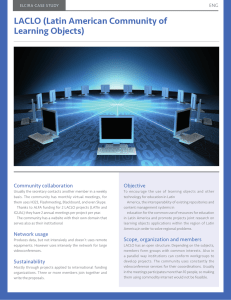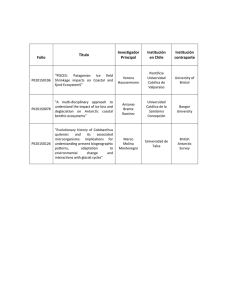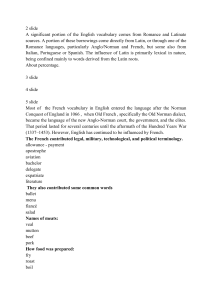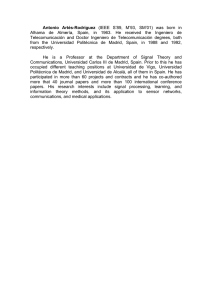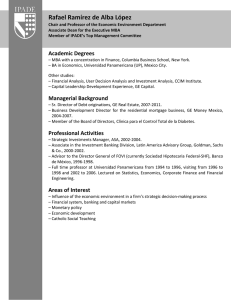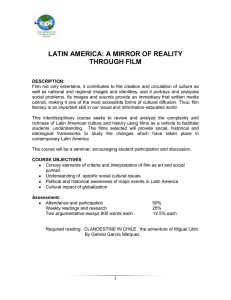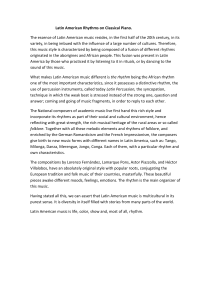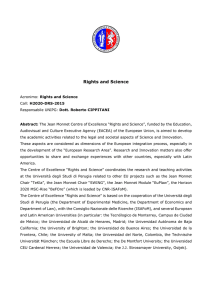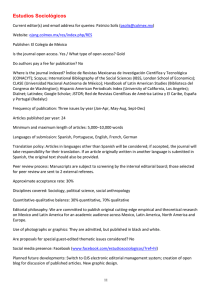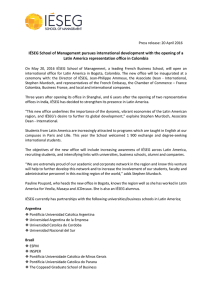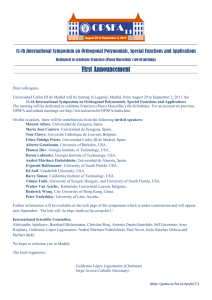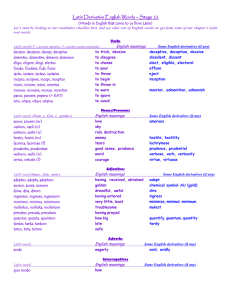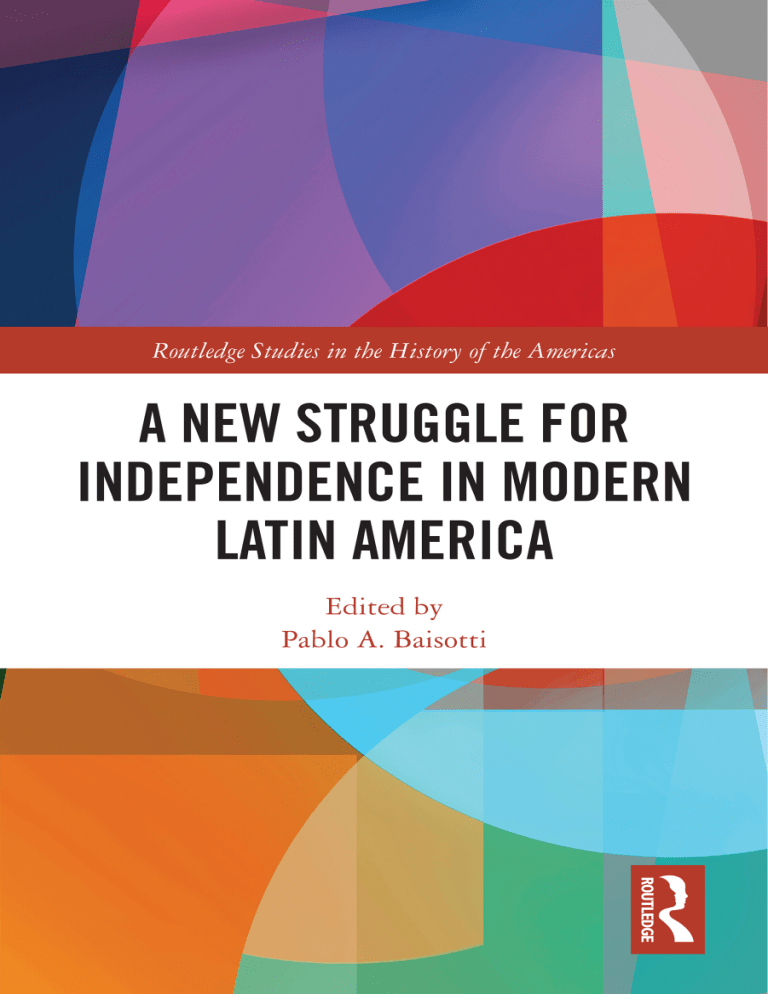
6 Latin America and the Great Cold War Strategy Alejandro Cardozo Uzcátegui and Luis Ricardo Dávila Introduction Latin America Is a Regional Bloc for the First Time The Cold War is the most global geopolitical, cultural, and ideological trance in history. It was not the first war involving ideological, economic, cultural, and social model crises – any international crisis from the Peace of Westphalia to World War II involved these factors. Nevertheless, that conflagration’s globality is unprecedented. So global that it even extended into outer space. During the Cold War, Latin America’s role, as an area of influence of the United States, could be compared, not without risk, with Eastern Europe, however, only in geographical and historical proximity to one of the hegemons. Nonetheless, it was not of total acquiescence within the “great strategy” (Venkatshamy 2012) of the Soviet Union, as was Eastern Europe. The Soviet Union achieved ironclad control over its satellites through the Warsaw Pact (military and economic cooperation but endorsed by Moscow’s control over the signatory countries). In Latin America, the geopolitical paradigm will be the old Inter-American System, with unambiguous terms of self-determination and sovereignty of each member country through soft balancing mechanisms mediated by multilateral diplomacy (Russell and Tokatlian 2013, 165). Once the system consolidated in the American States’ Organization in 1948, the signatory countries were free to choose up to what level they would commit to alliances with the hegemonic nation of the system, the United States. For example, not all members signed the military alliance (Inter-American Treaty of Reciprocal Assistance in 1948) or withdrew without consequences, a situation unthinkable in the Warsaw Pact area (except Albania in 1968). In any case, if it seems a forced comparison, it is only to underline the importance of the geopolitical scope of the zones of influence during the Cold War. In that sense, Latin America is the United States’ influence in its natural zone. This fact grants notable comparative characterizations of the southern region’s role during this period (circa 1947–1991). DOI: 10.4324/9781003042686-6 352 Contributors (CEFIR); and Full Academic at the National Academy of Letters of Uruguay. He also holds a membership in the Spanish Royal Academy, in the National Academy of Sciences of Uruguay, and in the National Academy of History of Argentina. Besides, he is President of the Uruguayan Association of International Studies (AUEI) and guest professor and responsible for undergraduate and graduate courses (at Master’s and Doctorate levels) at the national and international levels, and Consultant of different international institutions (UNESCO, UNDP, Mercosur, FLACSO, OAS, European Union, UIP, IIDH, OEI, etc.). Alejandro Cardozo Uzcátegui holds a PhD in History from the University of the Basque Country/Euskal Herriko Unibertsitatea (EHU), and a Master’s in History of the Atlantic World: Power, Culture and Society from the same university, and the University of Valladolid (UVA), Vitoria-Gasteiz, Basque Country (Spain). He worked as a professor at the Universidad Simón Bolívar (USB) in Caracas, Venezuela. He is currently a full-time professor at the School of Politics and International Relations at the Universidad Sergio Arboleda in Bogotá. He has been a Research Fellow at the Simón Bolívar Museoa, in ZiortzaBolibar, Bizkaia (Spain). He was editor-in-chief of the Political Science Journal of the Universidad de los Andes (Bogotá, Colombia), and now is the editor of Editorial Nuevos Aires. He has published several research books in history and political science. Loreto Correa holds a B.A. and an M.A. in History from the University of Chile, and another M.A. in Latin American History from the International University of Andalucia. She has a PhD in International Relations at the Universidad San Pablo CEU in Madrid. She is a Senior Researcher and Reader in History and International Relations at the National Academy of Political and Strategic Studies (ANEPE, Chile). Luis Ricardo Dávila has a B.A. in Economics from the Universidad de los Andes, Merida, Venezuela, and an M.A. from the Ecole des Hautes Etudes in Social Sciences, Paris (France), Finally, he has a PhD in Social Sciences from the Ecole des Hautes Etudes, and also in Political History from the University of Essex (England). He is honorary member at DRCLAS, Harvard University. Currently, Luis Ricardo is a Research Scholar at the Department of Latin American and Iberian Cultures, Columbia University. Roberto Durán is a DES from the Graduate Institute of International Studies (University of Geneva), Switzerland. He has a Master’s in Sociology of Development Studies from the Latin American Institute of Doctrine and Social Studies (Santiago, Chile/Catholic University of Leuwen), Belgium. He holds a B.A. in Economics from Catholic University of Fribourg, Switzerland, a Diploma in Social Sciences from
